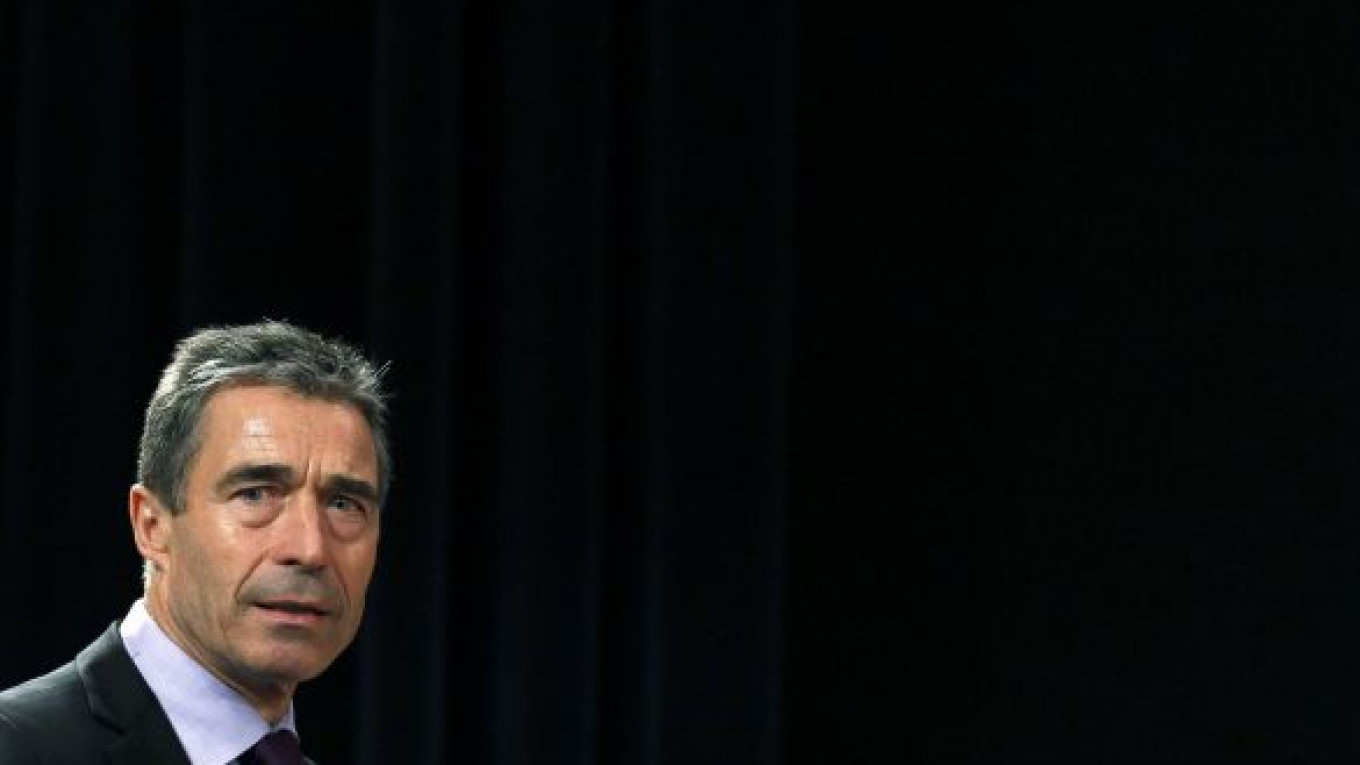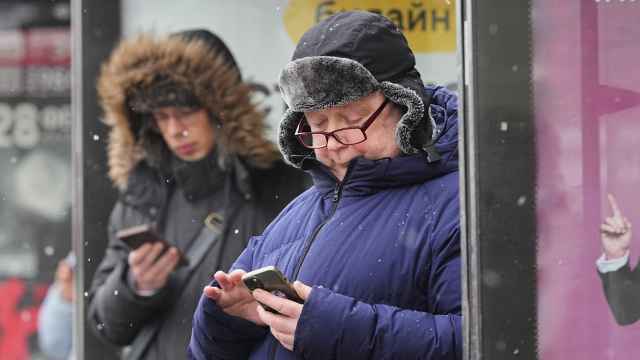BRUSSELS — On the eve of crucial talks with NATO in Brussels, Foreign Minister Sergei Lavrov attacked the alliance by accusing it of spreading instability in Libya and neighboring countries.
"After NATO's bombing campaign, which had nothing to do with the UN Security Council mandate, the country has been left in a state of extreme destabilization," Lavrov said Wednesday in Moscow.
He said a recent military coup in Mali showed that instability was spreading in the region.
"This only assures us that the Libyan scenario must not repeat itself anywhere in the world," he said at a news conference with his Moroccan counterpart, Interfax reported.
Moscow has been highly critical of the NATO-led campaign in the past, but a top alliance official dismissed that criticism Tuesday as hardly justified.
"Russia clearly expressed its distress of how Libya ended so well," the official said, speaking on condition of anonymity in line with NATO policy.
Lavrov is expected in Brussels on Thursday for talks with NATO foreign ministers. The talks are significant because they will replace a Russia-NATO summit that was planned to take place in Chicago next month. NATO Secretary General Anders Fogh Rasmussen has said he and President-elect Vladimir Putin agreed that it would be difficult to hold a summit just weeks after Putin's inauguration.
NATO on Wednesday kicked of a two-day series of defense and foreign ministers' meetings in Brussels focused on a planned troop withdrawal from Afghanistan.
NATO is looking to Moscow to help manage the logistical challenge of bringing more than 100,000 troops and tens of thousands of vehicles and containers with equipment out of the landlocked country.
The government has offered Ulyanovsk's Vostochny airport as a hub, a move that has triggered an unexpectedly strong condemnation from Communists and other opposition groups, who accuse the Kremlin of selling out to the West by letting it enter the country's strategic heartland.
Lavrov and other officials have rejected the criticism, saying the transport would be purely commercial and that no NATO personnel would be based in Ulyanovsk.
An agreement about the Ulyanovsk hub could go into force whenever the Russian government wants it, a NATO spokesman said Wednesday.
Thursday's talks are expected to focus on cooperation between NATO and Russia over Afghanistan, which also includes training and equipping the Afghan armed forces and efforts to stem the drug trade.
Deputy Foreign Minister Alexander Grushko, who is tipped to be Moscow's next ambassador to NATO, said both sides would also talk about missile defense but that no breakthrough should be expected.
"Without a substantial change of the U.S. and its NATO partners' basic positions, the talks will just go in circles," he told Interfax.
Moscow agreed to seek cooperation with NATO over plans to protect Europe from a missile attack with interceptors and radars. But the Kremlin has subsequently expressed frustration about NATO's conditions and threatened to station rockets on its western borders because the missile shield would undermine its nuclear deterrent.
NATO's Rasmussen stressed Wednesday that the planned shield was "not directed against any country but against a threat."
The NATO official who spoke anonymously stressed that cooperation with Moscow is at an all-time high. "Historically, the structure we have today is by far the most developed," the official said.
A Message from The Moscow Times:
Dear readers,
We are facing unprecedented challenges. Russia's Prosecutor General's Office has designated The Moscow Times as an "undesirable" organization, criminalizing our work and putting our staff at risk of prosecution. This follows our earlier unjust labeling as a "foreign agent."
These actions are direct attempts to silence independent journalism in Russia. The authorities claim our work "discredits the decisions of the Russian leadership." We see things differently: we strive to provide accurate, unbiased reporting on Russia.
We, the journalists of The Moscow Times, refuse to be silenced. But to continue our work, we need your help.
Your support, no matter how small, makes a world of difference. If you can, please support us monthly starting from just $2. It's quick to set up, and every contribution makes a significant impact.
By supporting The Moscow Times, you're defending open, independent journalism in the face of repression. Thank you for standing with us.
Remind me later.







